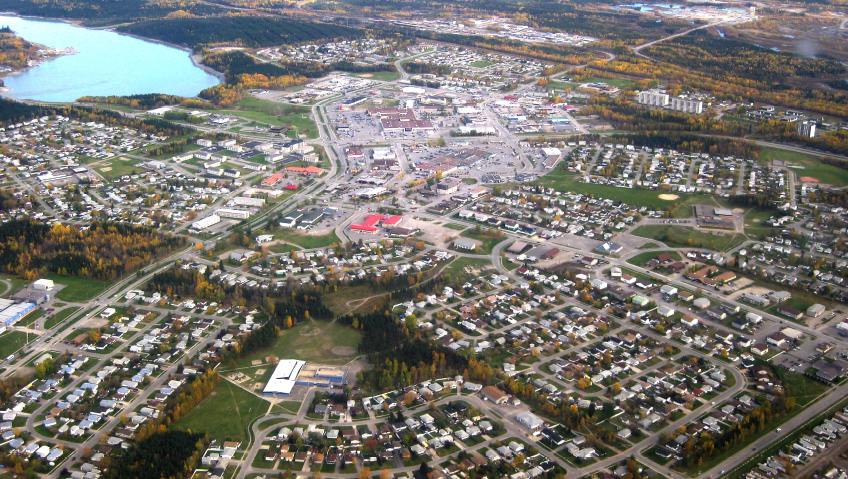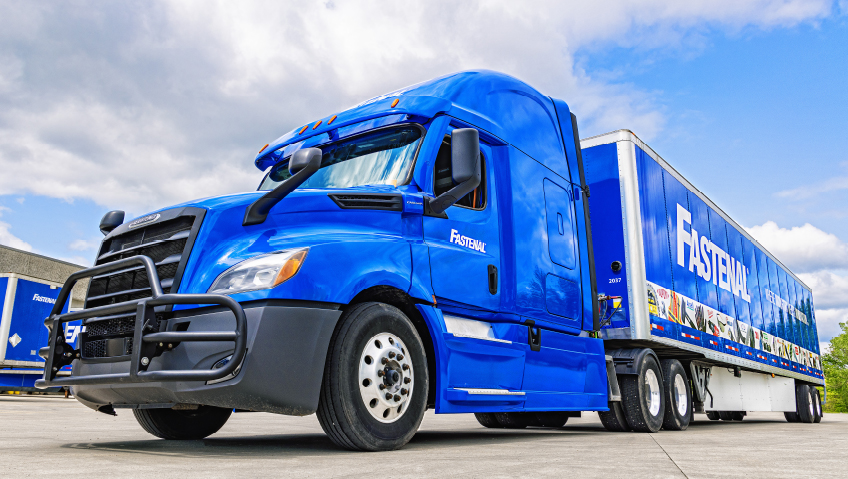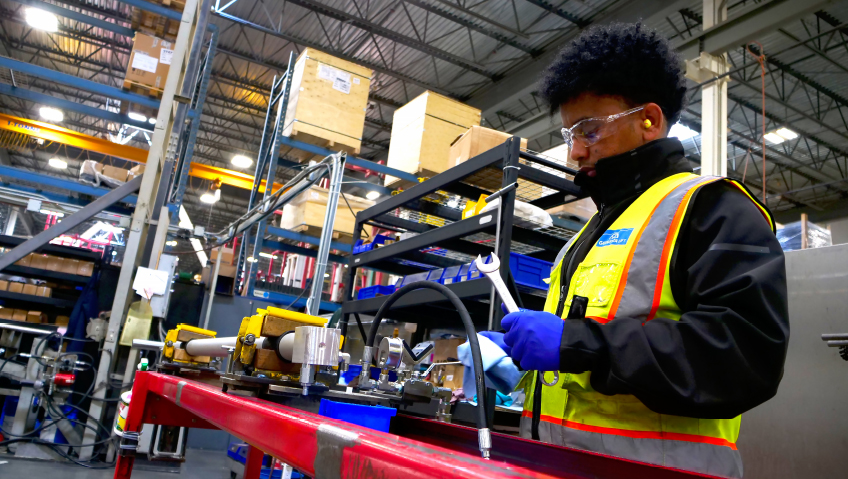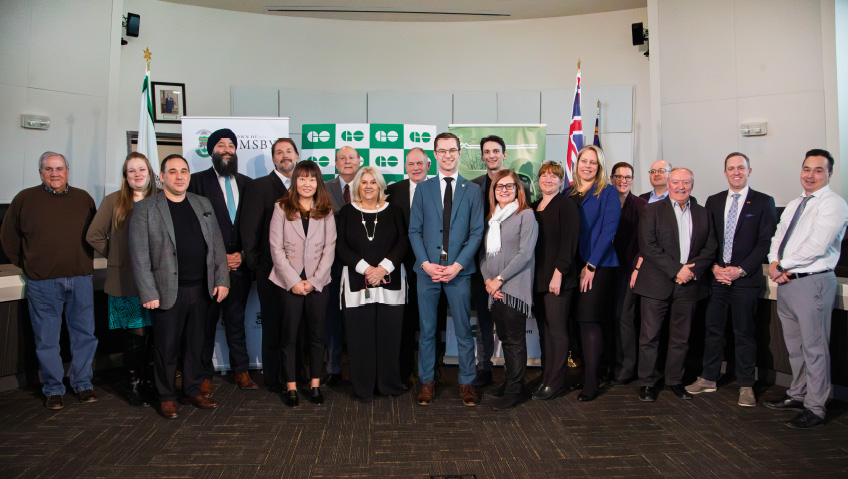What sort of a city could rise to the occasion and host over 1,500 athletes at short notice for its province’s official Winter Games, when the presumed host city, which had made a successful bid, had been unable to meet its commitment? And do it not once, but twice?
The answer is (drrrrrumroll!) Thompson, Manitoba, which hosted the games in 2018, and because of its success, its sizeable arena (home of the Norman Northstars, a member of the U-18 AAA Hockey League), and its proximity to Mystery Mountain Winter Park, a ski hill north of the city, has been approached by the Province of Manitoba to do it again in 2026.
“We can handle whatever’s thrown at us,” says Mayor Colleen Smook, “and that’s exciting. In 2025 we’re hosting the Provincial Firefighter’s Challenge. In the past, we’ve hosted the provincial Tournament of Hearts curling bonspiel, and most recently we hosted a northern conference on transportation.”
It’s this calm, capable, ‘can do’ attitude and sense of camaraderie among the citizens of Thompson, in its strategic location in the Arctic corridor, that has powered the nickel mining town to grow and prosper as a transportation hub.
“I think the key to prosperity and moving forward is working with the people,” says Smook, who has served on the city council for 10 years and as mayor for the past six. “Our issue is that we don’t sell ourselves on the good things that are happening. Especially now, coming out of the pandemic, we have been able to put provincial and federal dollars into our community to attract people, investors, and more businesses and services. I think it’s important for people to know what’s happening here, and why it’s a great place to live and do business.”
Unique nickel reserves
After 10 years of exploration for nickel deposits in northern Manitoba, Inco Ltd. discovered a major ore body in the heart of the boreal forest, 761 km north of Winnipeg and 32 km southwest of Moak Lake, in 1956. Following an agreement between Inco and the Province of Manitoba to develop the area and build a rail link with the Canadian National Railway, the town was founded the following year and named after Dr. John F. Thompson, Inco’s chairman at the time.
The newly developed city, constructed by thousands of workers, sprang to life in 1961, coinciding with the formal opening of the mine, the second largest nickel-producing operation in the world after Inco’s Sudbury, Ontario mining operation.
The nickel mines are the city’s single largest employer to this day, employing underground miners, millwrights, electricians, mechanics, and accounting and management staff, and are now managed by Vale Manitoba Operations, a division of Vale Canada, a subsidiary of Brazil-based owner Vale.
“They are a good community partner,” Smook says, referring to the company’s assistance in developing parks, supporting construction of Thompson’s new pool, and funding the City of Thompson’s purchase and implementation of asset management software.
Currently, Vale is working on some big projects, having invested over $300 million in drilling in the last few years to define the exact area where they will hope to extract more ore. “They have worked at the 5,000-foot level in the past, but this will be at 7,500 feet. They think it’s worth it, and recently they hired 50 more people who they’ll train,” Smook adds.
Growing the hub
While the nickel mines continue to play a vital role in Thompson’s economic development, its importance as a northern transportation hub has grown.
Thompson has a population of around 13,000, about half of whom are Indigenous. The city provides services to another 50,000 people living in small communities throughout northern Manitoba. Thompson has become the region’s downtown, with goods shipped out to those communities and people coming into the city to avail themselves of its diverse services—retail, dining, healthcare, education, and recreation.
The city is served by VIA Rail which operates a passenger train from Winnipeg to Churchill—an ecotourism destination on Hudson Bay that is home to polar bears and beluga whales—and by the Hudson Bay Railway, which owns and ships freight along the railroad that links The Pas to Churchill and passes through Thompson. Other ground transportation companies serving Thompson include trucking companies Gardewine and Manitoulin Transport.
Smook is excited about the completion of the $35 million Miles Hart Bridge replacement over the Burntwood River on the north side of the city and is looking ahead to the new $120 million Thompson Airport, set to be completed in 2025, as the culmination of a 20-year effort—and key to the city’s success as a service hub.
Flying in and out of the airport are passenger airlines Calm Air, Perimeter Aviation, and Wings Over Kississing. They provide essential services, connecting Thompson with Winnipeg, while smaller planes supply services to 12 small outlying communities, some of which are only reachable by air except for during the winter road season from January to March. North Star Air, a cargo airline, flies supplies from Thompson throughout northern Manitoba and into Nunavut.
“They can carry anywhere from 7,500 to 10,000 pounds, depending on where they are going,” Smook says, “and they typically go out seven times a day. During the pandemic when things were backed up and other airports were down, our airport barely skipped a beat. We might have gone down to 80 percent capacity, whereas everyone else was down to 20 percent. This is one of the reasons we’re ready to have people move here, because the transportation services they need to do business are all here.”
Federal, provincial, and Indigenous partners
Thanks to grant proposals that originated before the pandemic, the Mayor and Council have realized some huge recent successes in terms of renewing and revitalizing the city’s all-important infrastructure.
In 2021, the city had $87 million worth of new capital projects approved for federal and provincial infrastructure funding. $40 million is earmarked as road renewal funding for 20 km of streets, while $47 million will go toward a water and sewer main renewal project. These five-year projects, which recently completed their third construction season, recognize Thompson’s important role in the North and are critical first steps toward a sustainable future, according to Mayor Smook. “Thompson is bigger than just the people who live within city limits. We are the Hub of the North and people across the region rely on our infrastructure year-round.”
A major project just getting started which will change the footprint of Thompson is the result of a partnership between the City and the Keewatin Tribal Council, which represents 11 First Nations of Northern Manitoba. In 2023, KEDC Corp, the tribal council’s economic development agency, acquired 89 acres of forested land adjacent to the northern portion of the city and the Burntwood River.
Over the next seven to 10 years, the agency plans to build an office building for the Keewatin Tribal Council, a health centre, a hotel, and a conference centre, followed by plans to construct 384 housing units, which will include some affordable housing, assisted living, and personal care home spaces.
In a 2023 press release announcing the agreement, Smook says, “Northerners know that cooperation is the key to progress and that working together is the best way to achieve the goal of prosperity for everyone. Northern Manitoba benefits when Thompson is doing well, and the local economy will benefit greatly from the Keewatin Tribal Council’s significant investment in the long-term growth of the city.”
In the same release, Keewatin Tribal Council Grand Chief Walter Wastesicoot noted that the project is both a way for northern First Nations—which have many citizens who live in Thompson and others who visit for shopping, recreation, and healthcare—to take charge of their economic future and to ensure that Thompson continues to provide the facilities and services that the entire region relies on.
Better for business
In support of local business, the City of Thompson offers a Financial Assistance Program as a way to mitigate the costs of development and upgrades for property-owning private businesses. This program is designed to subsidize a portion of the city’s property tax increase associated with the development of vacant land or upgrades to existing facilities, with the amount that can be subsidized dependent on the type of development.
Re-development of an existing property is eligible for a deduction of 100 percent of the assessed increase in the first two years and 50 percent in years three, four, and five, while new development is eligible for a deduction of 50 percent over five years. To be considered, the property must be zoned as commercial, commercial/residential, or residential with five units.
Living the life
Thompson has much to offer for its residents and visitors alike. Outdoor enthusiasts will be attracted to the range of activities the area affords—hunting and fishing, both downhill and cross-country skiing, boating, snowmobiling, golf, riding stables, and a variety of wildlife to be seen, including caribou and moose.
In town, there are two arenas for skating and hockey in the Thompson Regional Community Centre, which is connected to the independently run Burntwood Curling Club. Currently under construction next door is the new Thompson Regional Aquatic Centre, a $42.6 million facility which will feature a six-lane, 25-metre pool with one accessible lane, a beach-entry recreational pool, and a sauna.
Several new restaurants have recently opened, including The Club, a restaurant and lounge with golf simulators; Chili Chat, an Indian restaurant; and Popeye’s Chicken, a franchise operation. In addition, there is the Ma Mow We Tak Friendship Centre, which operates a restaurant, offers Indigenous-focused programs, and has worked with the City of Thompson to develop an affordable housing complex for seniors. Retail outlets include Giant Tiger, Canadian Tire, Wal-Mart, Safeway, and Family Foods.
Families considering relocating and pondering the educational options will find much to like at R. D. Parker Collegiate. This local high school has undergone a recent $13 million expansion including a new $7 million music room, as well as roof and building envelope upgrades, and offers vocational as well as academic programs. Mayor Smook’s seven children are all graduates of R. D. Parker Collegiate, and she notes that some of the school’s graduates are now in various leadership positions both in Canada and abroad.
There’s also the University College of the North, a post-secondary institution offering Bachelor of Nursing and Bachelor of Education degrees, among other programs, and the University of Manitoba’s Northern Social Work Program.
So, with a great sense of Thompson coming together in the light of these many recent achievements, will the Mayor and her Council take just a little time to rest on their laurels? Mayor Smook is ready with a resounding no. “We’re still working behind the scenes, and this is just the start of more good things coming to Thompson.”






